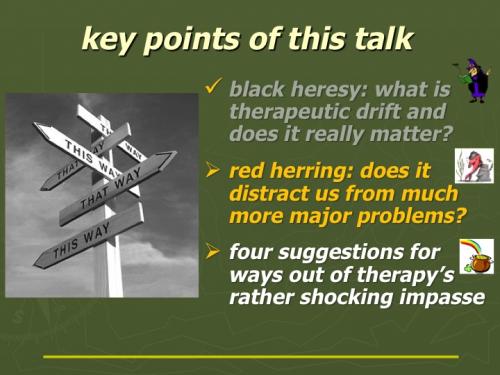Learning to run therapy groups
Last updated on 30th December 2016
I run an annual five day training for counselling psychology students on facilitating groups. I'm using this blog post to upload some of the slides. For example here's a collection on the current state of psychotherapy & some suggestions on potentially helpful ways of moving forward.
More to follow! ...


